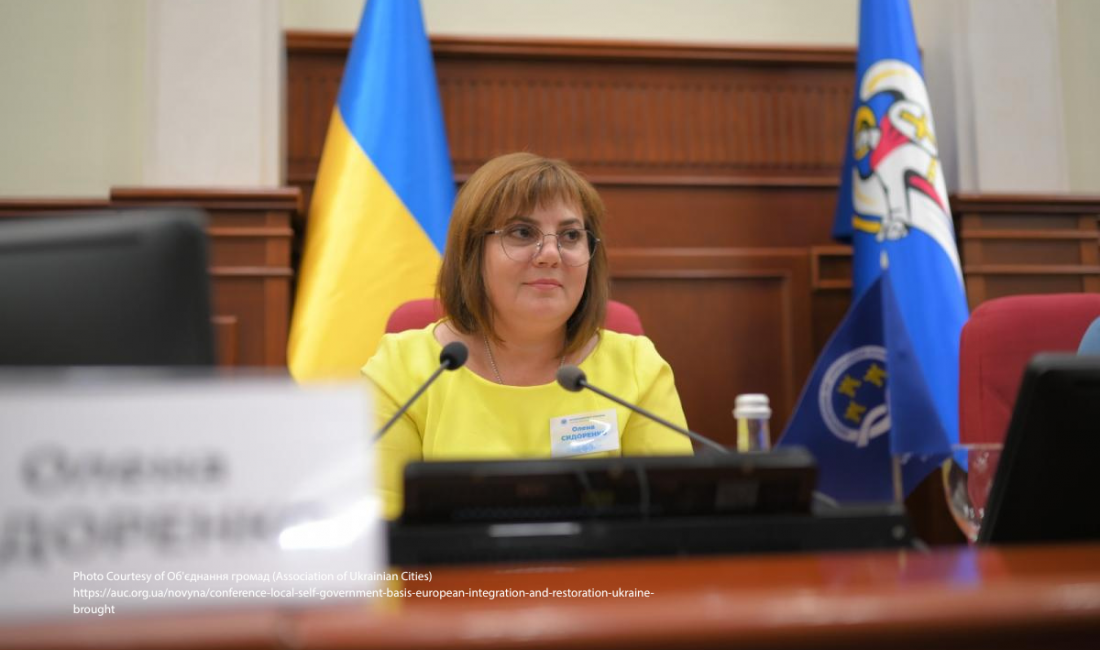'The War Has Not Stopped Openness. The War Has Made Openness Essential'
This Q&A is adapted from remarks of Olena Sydorenko, Mayor of Orzhytsia, a settlement in the Poltava region of Ukraine, during a roundtable event, “Local Open Government to Transform Democracy,” at the Open Government Partnership Summit in Vitoria-Gasteiz.
How are subnational governments shaping the future of open government and local democracy?
I represent Orzhytsia, a small rural community in central Ukraine. Today, in the fourth year of the full-scale war, Ukrainian communities face enormous challenges — displacement, loss, and the need for recovery.
But we are convinced: open government is not a luxury — it is a survival strategy.
The decentralization reform, launched with the support of the Council of Europe and the Congress of Local and Regional Authorities, gave communities like Orzhytsia real powers and resources. It taught us to take responsibility, make decisions together with people, and explain every step openly.
Which open government reform are you most proud of, and what has been its impact on your community?
We are most proud that we have turned citizen participation into an everyday practice.
After taking part in the global OGP Summit in 2023, with the support of the Council of Europe’s Congress of Local and Regional Authorities project, Orzhytsia joined the OGP Local initiative in 2024, together with the community of Zviahel, forming a consortium that helps us learn and share innovations.
We created a multi-stakeholder forum that united local authorities, civil society organizations, veterans, and youth. Through this collaboration, we jointly developed and adopted our Open Government Action Plan for 2025–2026.
From this plan, I am especially proud of two areas:
Youth engagement: participatory school budgeting and a youth council — these are steps that teach young people to dream and act, to make decisions, implement them, and take responsibility.
Veteran policy and memorialization: our veterans are not only examples of patriotism but also a powerful resource the community does not want to lose. We honor the fallen, support the living, and help every family.
These changes are already delivering results — trust is growing, and people feel that their voices matter, even under the difficult conditions of war.
What are the next steps on your open government agenda?
Our next step is to institutionalize our success.
We have established a Coordination Council that will monitor the implementation of the Action Plan quarterly and publish the results online.We are expanding the veteran support system, linking local initiatives with national programs so that no family is left without help.
How can we build a stronger community to advance open government principles across all local authorities?
For us, the key is collaboration.
Together with Zviahel, we exchange practical tools — they were the first to introduce participatory school budgeting, and we are adapting this model for rural schools.We hold joint forums, training sessions, and peer mentoring.
This proves that even in wartime, Ukrainian communities can learn from each other and spread open practices further.This is how a genuine community is born — from the local to the national level.
How can international partners better support the development of open government at the local level?
We are deeply grateful to the Congress of Local and Regional Authorities of the Council of Europe.
It was the Congress that helped us develop our Action Plan, receive expert support, and bring our practices to the European level.
Thanks to this, Orzhytsia now has a sustainable platform for co-creation with citizens.
To move forward, communities like ours need support in three areas:
- Building the capacity of small communities and training facilitators;
- Developing digital tools for transparency and participation;
- Experience exchange between Ukrainian and European municipalities.
In the most difficult times, it is such partnerships that help us remain democratic, not merely functional.
What opportunities exist for deepening intergovernmental and interregional co-operation?
We already cooperate with other communities through the Association of Ukrainian Cities and the platforms created by the Council of Europe — in particular, the Dialogue Platform between local and central authorities on open government in Ukraine.
Our task is to spread participation tools — youth councils, school budgets, veteran spaces — to neighboring communities in the Poltava region.
Thus, a horizontal network of collaboration is emerging, where each community teaches another.Our philosophy is simple: the war has not stopped openness — it has made it essential.
Orzhytsia proves that even a small community can be a leader in open government if it has the trust of its people, partnership with Zviahel, and the support of the Congress of Local and Regional Authorities of the Council of Europe.



